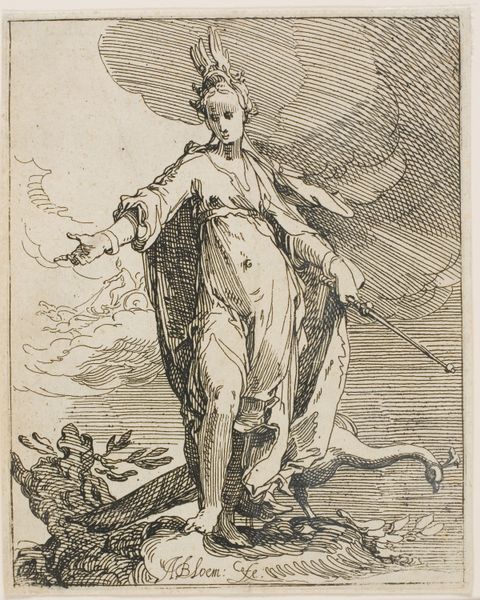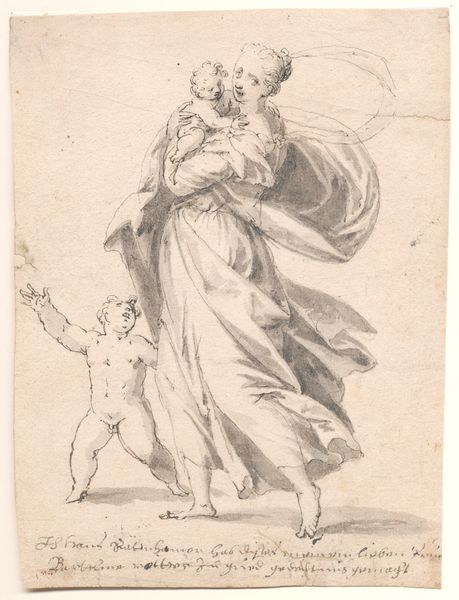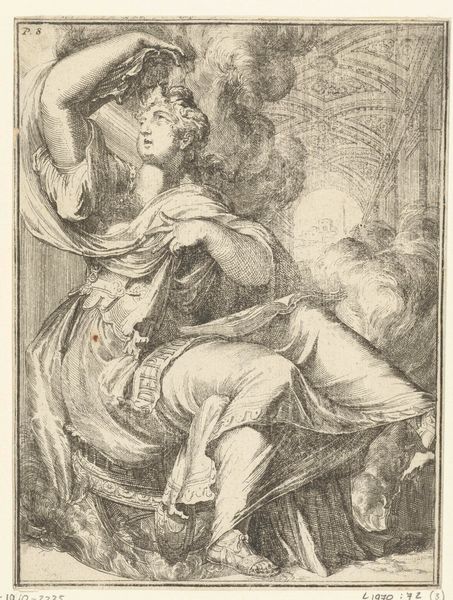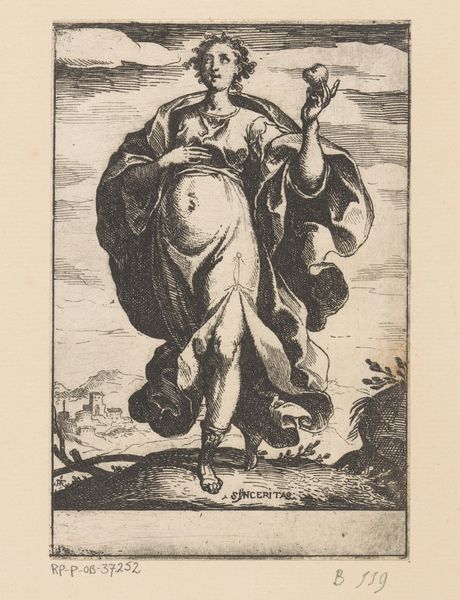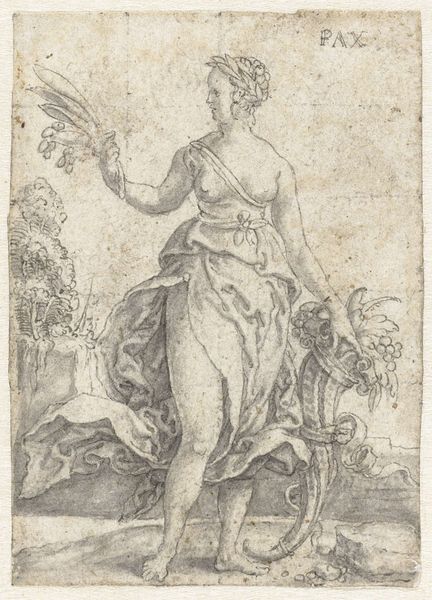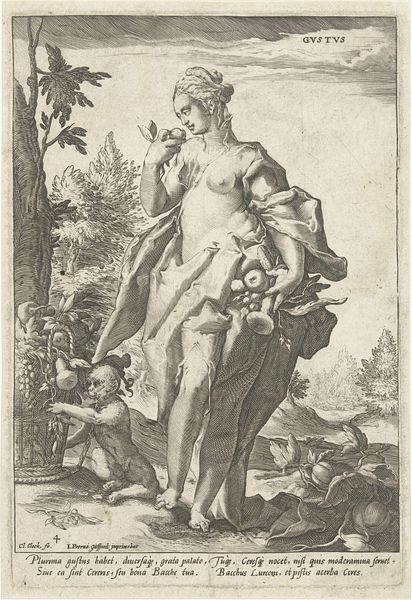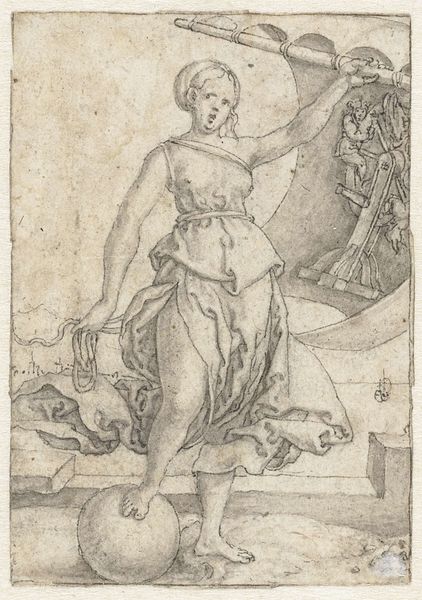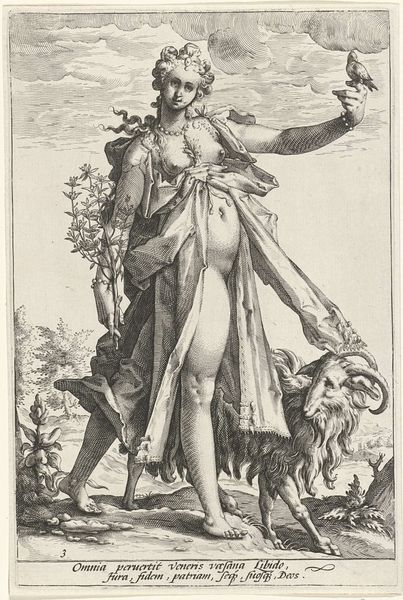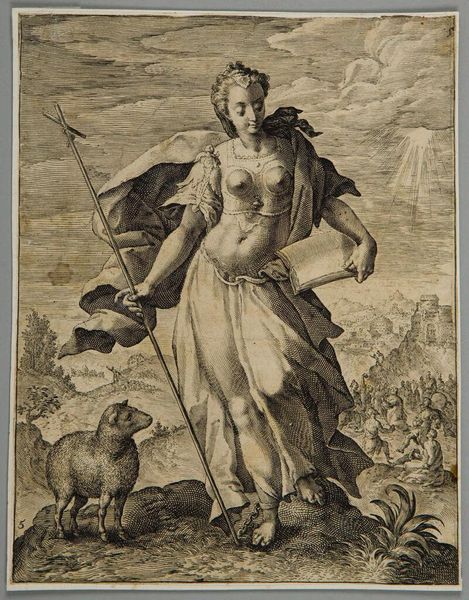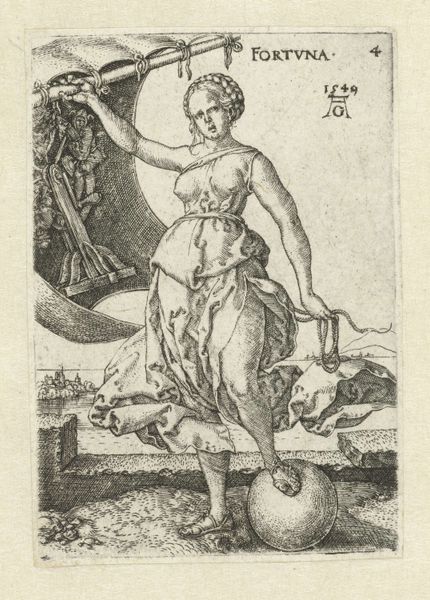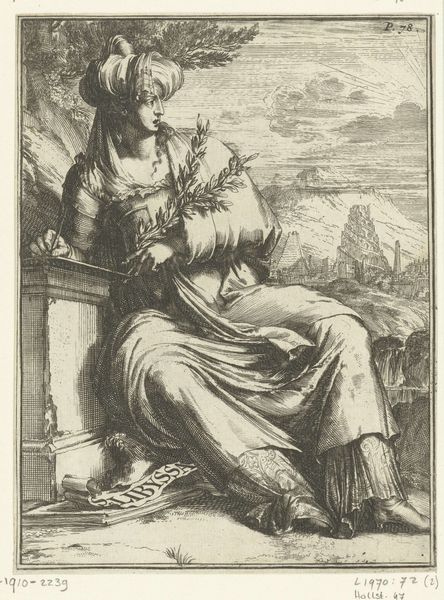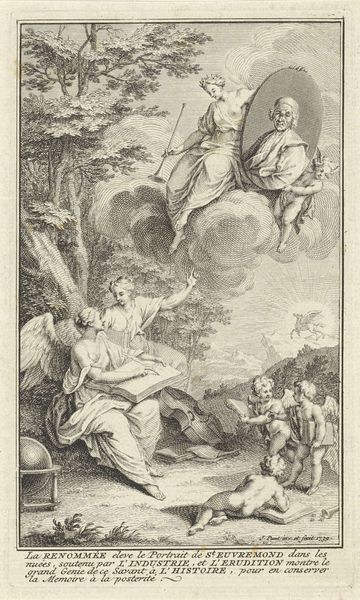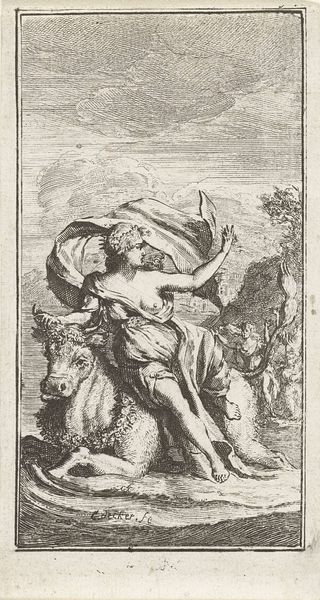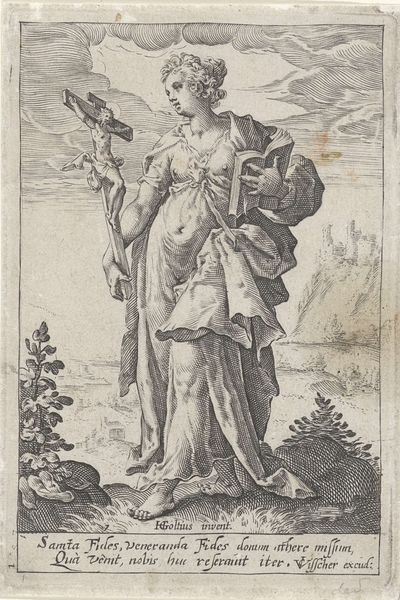
print, engraving
#
toned paper
#
allegory
# print
#
pen sketch
#
figuration
#
11_renaissance
#
pen-ink sketch
#
sketchbook drawing
#
northern-renaissance
#
nude
#
engraving
Dimensions: height 249 mm, width 170 mm
Copyright: Rijks Museum: Open Domain
Curator: Ah, I love this one. It's Nicolaes Jansz. Clock's "Gehoor," made around 1596. You're looking at an engraving, currently residing at the Rijksmuseum. Editor: Striking figure! All those swirling lines... it feels almost like she's made of sound itself. And look at that lute, front and center. There’s a definite performative aspect in that staging. Curator: Clock’s going for something deeper here. See the Latin inscription up top – AVDITVS? That means "Hearing" in Latin, so this is one of the senses personified, part of a whole tradition of allegorical prints. Editor: I’m drawn to the instruments at her feet -- are those trumpets, trombones and lyres broken? I see the lute in her hand in opposition to those ones below, the suggestion is that musical culture must be actively kept from perishing Curator: Yes! You're spot on! Those discarded instruments alongside the books represent corrupted hearing or knowledge, maybe flattery that can be dangerous if one is to only hear it. Editor: But she herself... Is she nude, draped in that fantastical billowing fabric? Or what’s the relation of such refined practice, and this woman being naked, it’s like that hearing or listening needs one to bear themself naked. What are your thoughts? Curator: It does seem a paradox! The fabric hides and reveals, emphasizing a delicate balance. She stands on the precipice of a decision, listening wisely as implied by that gesture of contemplation in that landscape of ruined artifacts and broken tools! And this idea of revelation through nudity might connect her back to a classical ideal... What does it evoke in you, if you don't think about art for a moment? Editor: Hmmm… raw materials shaped by deliberate labor, alluding a tension between instinct and knowledge that mirrors her composition. Makes me want to go digging through a craftsman's toolbox. It certainly pushes boundaries, both conceptually and literally, for art of that era. Curator: Absolutely. And next time you hear someone say, "Listen carefully," maybe you'll remember this image and think of how carefully those skilled hands worked the material, the plate for each line to create this intriguing allegory of sound itself. Editor: Indeed! A poignant reminder that making requires skillful and often unseen work and active effort; the message rings clearly even after all these centuries.
Comments
No comments
Be the first to comment and join the conversation on the ultimate creative platform.
